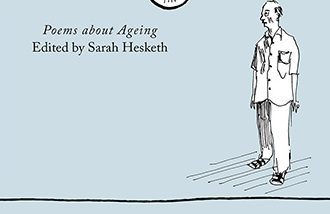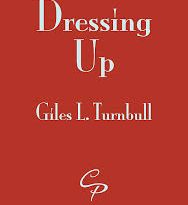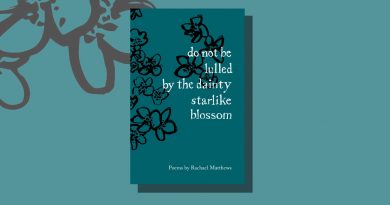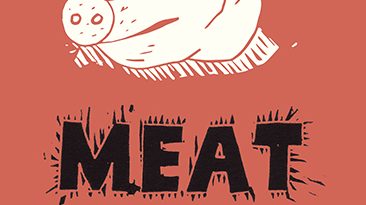The Emma Press Anthology of Age edited by Sarah Hesketh
– Reviewed by Angela Topping –
The Emma Press Anthology of Age is not so much about the problems of being old as the whole process of ageing, which we are all doing, all the time. So it has a very broad sweep, and is not just aimed at the elderly, though I find the silver cover amusing. A good range of poets is represented, and the quirky illustrations by Emma Wright are a delight. The book is not divided into sections, but flows from one poem to another, giving a sense of unity and journey. It’s always tricky to review an anthology with so many poets in it; singling some out feels a little unfair, when it’s all of the poets who make a book work. Apologies to everyone whose poems I do not mention. It doesn’t mean I didn’t like them, but I have to give a flavour of this anthology as best I can.
I love the sensuality of ‘Holding a Stranger’s Hand’ by Doreen Ní Ghríofa. She describes foxgloves so beautifully: ‘their lips pursed, like a sigh stifled, like a mother’s blush’. The poem moves subtly, using repetition, through different ages. I wish I had written it. Amy McAuley’s poem ‘I’ve heard of age: how it gobbles the time’ has a wonderful skitting motion across the page. Robert Hamberger’s accomplished sonnet ‘Saying my Name’ bandages tightly the wound of a mother not knowing her son, something which is becoming all too familiar at the moment, but saying it so well:
Nothing this time. I name my sons and daughter,
say her sisters’ names, tell her all our news
to ease the silence, darkening like a bruise.
Bridget Mackenzie’s poem ‘Kennings’ tackles the same issue, forgetfulness. Here, the loved elder’s language is vanishing, who could once translate from Old English, Dutch and knew all the Latin names of plants. Broken lines act out the hesitancy, and the ending has a lift of hope, as the visitor reads poetry aloud, getting some reaction: ‘she whispers along some words / moth-swallowed’. The last phrase is a reference to one of the Anglo-Saxon riddles from the Exeter riddle book, which I wouldn’t have spotted without the modest end note.
As one might expect, nursing homes feature in quite a few of these poems, and all find something new to say about an eventual destination many of us dread, or have to visit to see loved ones. Hilaire’s ‘Christmas Lunch at the Nursing Home’ has a kind of bleak humour, contrasting a girl and her mother, visiting their grandmother and mother respectively. After witnessing her mother spooning pureed Christmas dinner into the mouth of the old woman, the young one will not return. The mother does not have the choice. The young have a horror of the old, perhaps. Too much mortality does not sit well with the exuberance of youth. I had much the same feeling going along with my mother to visit aunts in institutions.
Another thread in this anthology is the journey of life. Susan Taylor’s ‘All Change’ is one such. It is an apparently simple, beautiful lyric. I particularly like the fourth and final stanza:
I am a changeling
aware of the silver
in my hair – quickening
me – no pause.
There is something like John Clare in Julia Bird’s ‘Lethe and the Nightingale’, though of course it is more ostensibly a reference to Keats’ Ode. Again, apparent simplicity casts a dream-like spell:
Oh I save the bird rhyme
by Some Fret
no, by Warm Quite…
Oh I save the bird rhyme
by Song Sweet
in my heart,
and I fancy
that I will have this
word-music there
when my brain
is all full blown.
Anja Konig, always an original poet, uses the idea of being in a tower which is under attack, and the aggressor is age. The only way through the siege is to allow the attacker in. The details in this poem make it so vivid, such as ‘winter horses’ and ‘horn buttons’. Aileen Ballantyne’s love poem ‘In the Garden’ is a delicious and sad poem about lovers who have grown old together until only one of them is left singing in the dark. This poem refers very subtly to assisted suicide. Lynn Hoffman’s poem ‘Last Lights’ is another tender loving poem, tackling with delicacy some of the great disasters of our time, Hiroshima, Treblinka, Omaha Beach, as she imagines each death is a little candle flame. Something about this reminds me of Billy Collins, with the same relaxed and gentle tone as he uses in some of his best poems.
I’ve admired Hugh Dunkerley’s work in previous Emma Press anthologies, and his ‘Waltz’ is one of my favourite poems in this book. He keeps waltz time in seven immaculate quatrains, and there isn’t a single word that does not earn its keep. I’d love to quote the whole thing because it’s hard to single out any of it, it’s so seamless. It’s about a daughter, visiting her father, who is being cared for at home. He does not know who she is, but his feet remember the waltz steps as she leads him, a beautiful metaphor of how the father becomes the child, the led one. Another poem I wish I had written.
This book also celebrates the old. Jane Burn writes movingly of her grandmother in ‘Watching’, richly interweaving luscious details and warm wit: ‘all her flesh / in cockled swags’, ‘her bolstered tits – two zeppelins’, ‘crackle-flung coal’. Oliver Comins’ ‘Swan Song’ is another such poem, shorter and sparer but full of a vanished way of life, a loved person. Isobel Dixon compares her father in his old age to a ‘vervet monkey’ in her poem ‘Survivor’, while Emma-Jane Hughes in ‘My Camel’ takes her grandmother to the toilet and sees her as a camel.
There are poems of illness, diagnosis and last rites, acceptance and denial, endnotes and last flourishes, timpani and harmony, ‘shadow-play through hearth-smoke’, as Jed Myers puts it in ‘Wood I Gather’. The Emma Press is going from strength to strength, and this is my favourite anthology of theirs so far.





